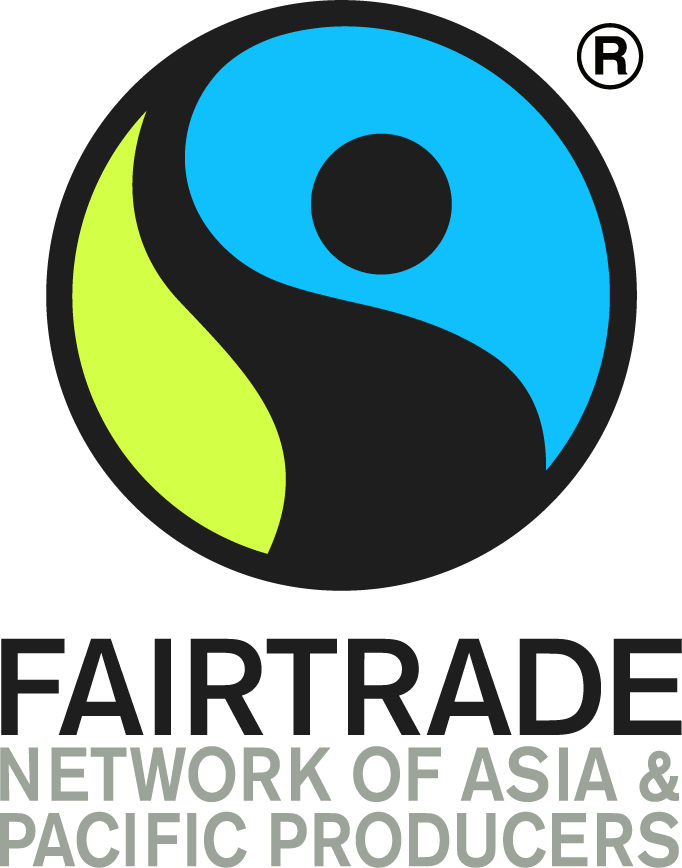26 Cotton farmers and management at Chetna Organic trained to tackle Human Rights and Environmental Risks in the supply Chain under the Fairtrade Finland Partnership project.
Bhawanipatna, Odisha — In a decisive step towards fostering responsible supply chains and empowering cotton-producing communities, Fairtrade NAPP, in partnership with Fairtrade Finland, conducted a transformative three-day workshop focused on Human Rights and Environmental Due Diligence (HREDD) for Chetna Organic Agriculture Producer Company Limited (COAPCL) — a Fairtrade-certified Small Producer Organization (SPO) in Odisha, India.


Bhawanipatna, Odisha — In a decisive step towards fostering responsible supply chains and empowering cotton-producing communities, Fairtrade NAPP, in partnership with Fairtrade Finland, conducted a transformative three-day workshop focused on Human Rights and Environmental Due Diligence (HREDD) for Chetna Organic Agriculture Producer Company Limited (COAPCL) — a Fairtrade-certified Small Producer Organization (SPO) in Odisha, India.
The workshop brought together 26 farmer members and Producer representatives to build actionable strategies for identifying, preventing, and addressing human rights and environmental risks — directly from the ground up.
A Strategic Push for Ethical, Resilient Cotton Supply Chains
At the heart of this initiative is a clear mission to strengthen producers’ ability to manage risk, enhance compliance, and foster inclusive, sustainable livelihoods across South Asia. Funded by Fairtrade Finland, the training is a key part of Fairtrade NAPP’s broader strategy to embed climate resilience, social equity, and responsible governance across its cotton supply chains.
Led by in house experts from Fairtrade NAPP — Raj Bhushan Roy- HREDD Program Manager and Manoj Kumar, Program Manager, West & South India — the program equipped producers with the tools, knowledge, and confidence to operationalize due diligence in their daily agricultural practices.


Training Objectives: From Awareness to Action
The multi-day sessions were designed to:
- Enable producers to conduct accurate and inclusive risk assessments.
- Share tools for effective prevention, mitigation, and remediation of human rights and environmental risks.
- Clarify the roles of rights holders, duty bearers, and key stakeholders.
- Encourage experience exchange and peer-to-peer learning.
- Help SPOs develop customized action plans aligned with HREDD and Fairtrade standards
Training Objectives: From Awareness to Action
The multi-day sessions were designed to:
- Enable producers to conduct accurate and inclusive risk assessments.
- Share tools for effective prevention, mitigation, and remediation of human rights and environmental risks.
- Clarify the roles of rights holders, duty bearers, and key stakeholders.
- Encourage experience exchange and peer-to-peer learning.
- Help SPOs develop customized action plans aligned with HREDD and Fairtrade standards


A Hands-On Learning Experience
Participants engaged in highly interactive activities including:
- Risk mapping exercises on child labor, environmental harm, and governance gaps.
- Stakeholder analysis to identify responsible actors.
- Traffic light tools to prioritize risks.
- Simulations and case discussions to apply learnings in real-world SPO contexts.
These hands-on methods helped bridge knowledge gaps and transformed abstract concepts into practical strategies that the Producer Organisation can immediately implement.
By the end of the training:
- Each participant developed a tailored HREDD action plan.
- They gained practical skills in risk validation using data and field insights.
- There was improved alignment between on-ground operations and Fairtrade sustainability standards.


Voices from the Field
“I now understand that child labour, plastic burning, and tree cutting are not just harmful — they are violations. I’ll take this knowledge back to my community and lead by example.”
Sangita Sahu, Board Director, Bhumata Producer Company Ltd
“Real-life examples helped me grasp risk management in a way I never had before. This was more than training — it was eye-opening.”
Dingar Patel, Farmer Member
“From traffic-light tools to mapping risks, this training gave me the clarity and confidence to protect our farms and our rights.”
Premasila Majhi, Farmer member


What’s Next: On-Ground Risk Assessments
In the coming months, Fairtrade NAPP will support practical risk assessments across participating SPOs. These assessments will measure ongoing challenges and refine mitigation and remediation strategies on the ground.
Challenges & Opportunities
While the workshop achieved impactful outcomes, one key challenge was the initial lack of conceptual clarity among participants. However, this was successfully addressed through interactive methods and sustained dialogue, turning the challenge into an opportunity for deeper learning.
Why This Matters
At a time when global supply chains face unprecedented disruptions due to climate risks and socio-political challenges, Fairtrade NAPP’s intervention in Odisha is a timely, strategic leap toward farmer-centric resilience and responsible trade. By empowering SPOs with the knowledge, tools, and frameworks for HREDD, this initiative strengthens not just individual communities—but the future of ethical and sustainable agriculture.
